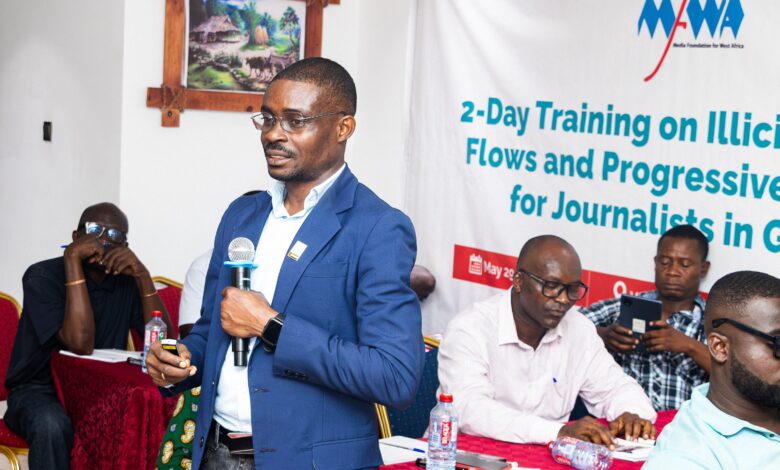A Nation in the Dark: Mr. Benaiah Nii Addo Laments Ghana’s Power Sector Crisis and Tax Burden

The Executive Director of Green Tax Youth Africa (GTYA), Mr. Benaiah Nii Addo, has issued a passionate statement decrying the deepening crisis in Ghana’s power sector. Speaking on behalf of the youth and vulnerable populations, particularly women and low-income families, Mr. Addo painted a grim picture of a country caught in a vicious cycle of debt, failed policies, and regressive taxation—all while the lights continue to flicker.
In his strongly-worded address titled “Power Sector Vicious Cycle of Debt and Tax Injustice Regimes,” Mr. Addo expressed deep concern over the government’s recent passage of the “1 Ghana, 1 Litre” levy on petrol and diesel. This new charge, rushed through Parliament under a certificate of urgency, adds a further financial burden to citizens already strained by soaring fuel prices, rising electricity tariffs, and unstable power supply.
“At a time when many are struggling to keep the lights on, this levy is not just tone-deaf—it’s unjust,” Mr. Addo said. “It disproportionately affects youth, women, and the poor, while offering no visible improvement in power supply or infrastructure.”
The Vicious Cycle of Promises and Pain
Mr. Addo traced Ghana’s energy woes back through a history of policy failures and broken promises. Between 2020 and 2024, he recalled, a number of measures were introduced under the banner of reform:
The Energy Sector Levies (Amendment) Act, 2021 (Act 1064) introduced new levies for energy recovery and sanitation.
The Emissions Levy Act, 2023 (Act 1112) imposed new taxes on carbon emissions and vehicles—costs which were simply passed on to consumers.
A $3 billion IMF bailout (2023–2026) came with stringent conditions, including energy reforms and debt restructuring. Yet, Independent Power Producers (IPPs) remain unpaid, with over $2 billion in arrears.
Despite these and other efforts—such as tariff hikes by the Public Utilities Regulatory Commission (PURC), renegotiated Power Purchase Agreements, and the Cash Waterfall Mechanism—electricity supply remains erratic, and consumers continue to pay more for less.
“Prepaid meters keep draining, and factories are forced to run on diesel generators,” Mr. Addo stated. “We are no closer to energy security than we were five years ago.”
History Repeats: The “1 Ghana, 1 Litre” Levy
The newly passed GHS 1 per litre fuel levy, which aims to raise GHS 5.7 billion—2.5 times more than previous levies—has become a symbol of everything wrong with Ghana’s fiscal approach. Mr. Addo accused the government of using urgency as a shield to avoid transparency and consultation.
“The levy was introduced without a clear expenditure framework, without public consultation, and with no real accountability. This is not new. It’s just another tax slapped onto a broken system,” he said.
The Blame Game
Mr. Addo did not spare the political class on either side of the aisle. He reminded the current administration that it once opposed such levies while in opposition. Today, it continues the same pattern of opaque governance. Meanwhile, the current opposition, he noted, laid much of the groundwork for the crisis through questionable energy contracts and mounting debts.
“Both parties are guilty,” he said. “This is not about politics—it’s about the failure of leadership, and the cost is borne by the people.”
The Way Forward: GTYA’s Recommendations
In a bid to break the cycle, GTYA offered concrete steps for reform:
1. Transparency: Publish detailed reports on all energy-related levies and how they are spent.
2. Public Participation: Establish mandatory civic consultations before introducing new fiscal measures, in accordance with the 1992 Constitution.
3. Efficiency over Extraction: Prioritise investments in power distribution efficiency and renewable energy.
4. Protection for the Vulnerable: Expand lifeline tariffs and introduce subsidies for low-income households.
5. Independent Oversight: Create a politically neutral body to track and report revenue flow in the energy sector.
6. Youth Involvement: Include youth-led civil society organisations in policy design, especially those that affect young entrepreneurs and consumers.
A Failing Contract
Mr. Addo’s final remarks were a sobering reflection on a nation stuck in a policy loop.
“The social contract has failed. The people are asked to pay more and more, but the lights keep going out. If this government wants to earn the trust of the people, it must stop the fiscal gymnastics and commit to real, structural reforms.”
As Ghana’s energy future hangs in the balance, the call from Green Tax Youth Africa is clear: stop the cycle of taxes without results, and invest in lasting, inclusive reform. Anything less, they warn, would be a betrayal of the people—especially the youth, the women, and those who can least afford to be left in the dark.






